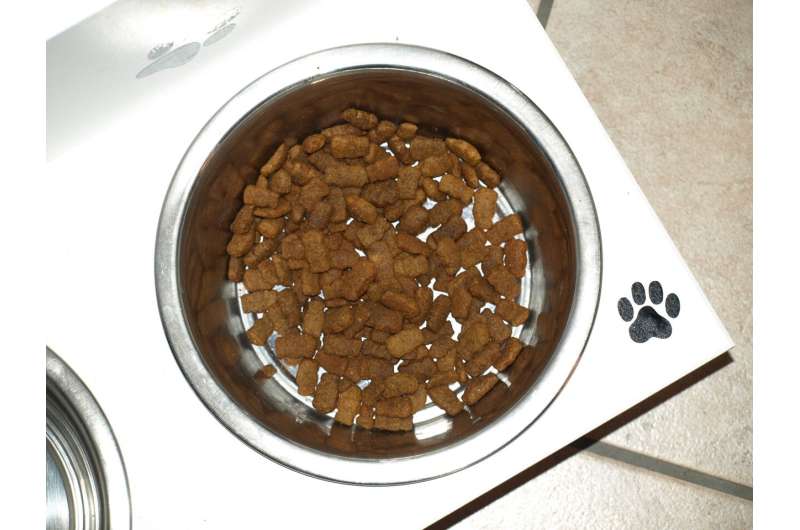Pets study: Feeding your furred friends dry food reduces their environmental impact

Cat and dog owners could significantly reduce the environmental impact of their pets' diets by feeding them dry food (consisting of kibble or biscuits) rather than wet food with higher water content, suggests a study of Brazilian pets published in Scientific Reports. The findings highlight how pet owners can feed their animals more sustainably while still providing them with sufficient nutrients and calories.
The population of pet cats and dogs is growing worldwide. Currently, the U.S. is estimated to have 76.8 million dogs and 58.4 million cats, while Brazil has 52.2 million dogs and China has 53.1 million cats. However, the environmental impact of pet diets is unclear.
Marcio Brunetto and colleagues evaluated the environmental impacts—including greenhouse gas emissions, land use, and water usage—of 618 diets for dogs and 320 diets for cats in Brazil. The authors investigated commercial wet diets and dry diets found on the websites of three major Brazilian pet food retailers. These were also compared to homemade diets—either food produced by companies, or food cooked by owners at home using recipes provided by companies. Additionally, the authors assessed the nutritional and calorific make-up of the different diets.
For all variables, wet diets for cats and dogs had the greatest environmental impact, particularly compared to dry diets. Homemade diets tended to have intermediary environmental impacts, although water usage in homemade cat diets was similar to dry diets. The authors estimate that a ten-kilogram dog consuming on average 534 calories per day would be responsible for 828.37 kilograms of CO2 per year when fed a dry diet compared to 6,541 kilograms of CO2 per year for a wet diet—an almost seven-fold increase (689%).
Dry diets provided the highest amount of energy per gram, while wet diets and homemade diets provided higher amounts of protein. In wet diets, almost twice as much energy was provided by animal ingredients compared to dry diets (45.42% versus 89.27%), which may contribute to their greater environmental impact.
These results highlight the extensive environmental impacts of pet foods, the need to make them more sustainable and an indication of how this may be achieved.
More information: Marcio A. Brunetto, Environmental impact of diets for dogs and cats, Scientific Reports (2022). DOI: 10.1038/s41598-022-22631-0. www.nature.com/articles/s41598-022-22631-0
Journal information: Scientific Reports
Provided by Nature Publishing Group





















